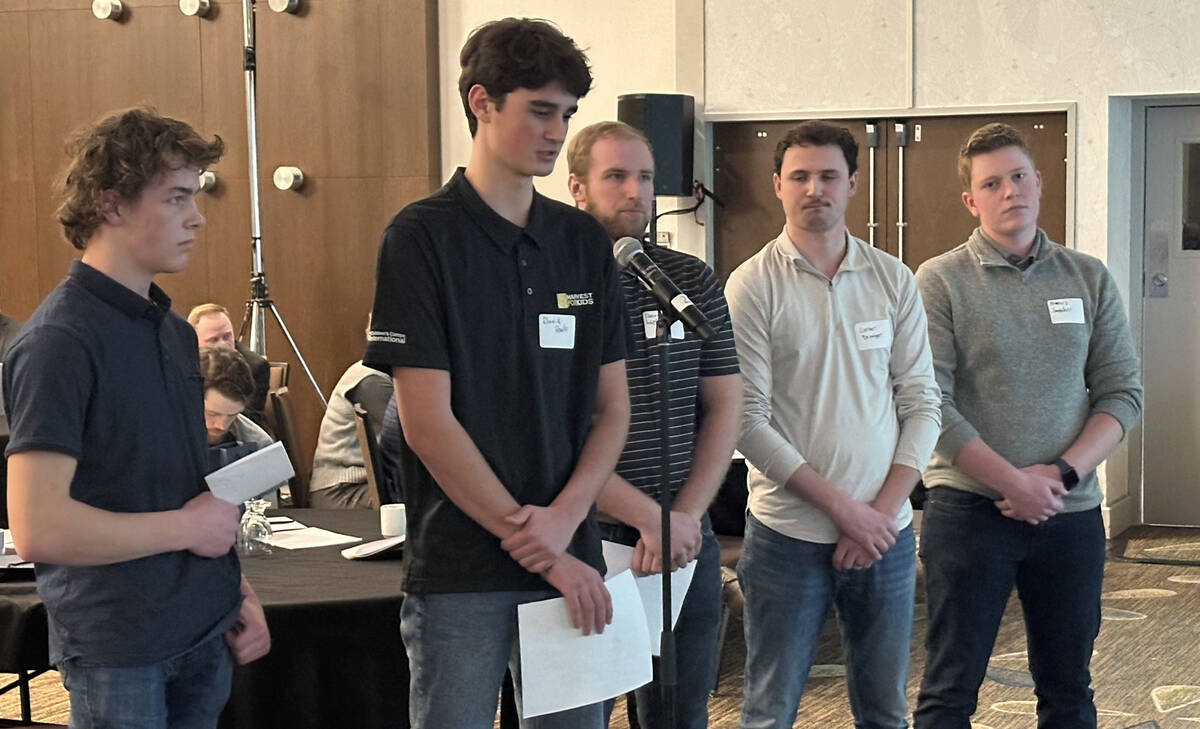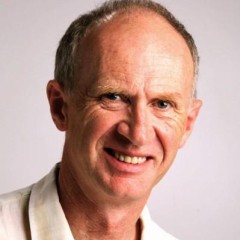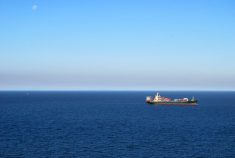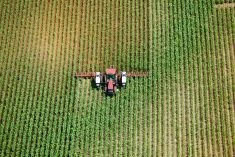Last week’s passing of former Archer Daniels Midland CEO Dwayne Andreas at age 98 serves to remind of his remarkable success and his influence on the world grain trade, including here in Canada.
In 1993, Andreas was in Winnipeg to receive an International Distinguished Entrepreneur Award from the University of Manitoba. A few journalists got a surprise call advising he was at the hotel and that we’d be welcome to talk to him.
I walked over and was waiting in the room when the door opened, and in walked not Andreas, but a man who pumped my hand and said “Hi, I’m Ross Johnson.”
Read Also

Students push for Manitoba road upgrades
Manitoba’s lack of higher-rated RTAC roads creates irritating highway detours and weight restrictions for farmers, University of Manitoba students told KAP.
This was a bit of a shock, given that Johnson had recently been the subject of a book and made-for-TV movie called “Barbarians at the Gate” and was at the time the poster boy for corporate greed of the late 1980s. As president and CEO of RJR Nabisco, he had launched a breakup and management buyout which ultimately failed, but left him with a huge personal profit.
A chat with Johnson shed some light on why he was there, and perhaps why Andreas was receiving the award — he had no particular connection to the province. But Johnson does. He is originally from Winnipeg and is a University of Manitoba graduate. The optics of him receiving an entrepreneurship award might have been a bit shaky, but Johnson was an ADM director and perhaps had some influence on the decision to give the award to Andreas. Johnson also mentioned that the next stop on their Canadian tour was a farewell dinner for his friend Brian Mulroney, who we later learned would join him on the ADM board.
This might sound like background for a press conference featuring classic American free enterprise rhetoric, but it certainly wasn’t. Andreas entered and immediately engaged in a long and wide-ranging discussion of world agriculture in which he emphasized the importance of fair incomes for farmers. He said a free market in agriculture is a “pie-in-the-sky” theory. As for leaving farmers to the “vicissitudes” of the marketplace, “The problem with that is when farmers compete with one another, they can devour the land during one generation, use up the topsoil in order to get cash enough to cover next year’s seed, but with what a free market produces for them they cannot possibly keep the topsoil, because that costs money, lots of money.”
In a line he’d use many times in his career, Andreas said that “Waiting for a free market in agriculture was like leaving the porch light on for Jimmy Hoffa,” a reference to the Teamsters Union boss who disappeared in 1975 and who was never found other than in stories in supermarket tabloids.
It must be said that Andreas’s world view was not entirely altruistic. As the world’s largest grain and oilseed processor, ADM has a vested interest in a large and steady flow of products to process, and the farm programs that Andreas supported helped ensure that.
And as with Ross Johnson, ADM was soon back on the Hollywood screen for the wrong reasons, with Matt Damon playing an ADM executive who informed the FBI about the company’s role in an international price-fixing scheme for lysine and citric acid from its corn-processing plants. The investigation led to a $100-million anti-trust fine, the largest in U.S. history, and the jailing of three ADM executives, including Andreas’s son Michael.
The company’s besmirched reputation didn’t discourage United Grain Growers from turning to it as a “white knight,” selling 45 per cent of the co-op to protect it after a buyout attempt by Alberta and Manitoba Pools in 1997.
That was just one example of how ADM was prepared to work in the background as a part owner of co-ops. After a series of deals with European co-ops, it recently completely took over Toepfer, making ADM one of the largest four international grain trading houses in addition to being the world’s largest processor.
Bringing Mulroney on to the board was another example of Andreas’s skill at making connections. He was a major donor with strong connections in both U.S. political parties, and was a personal friend of former Soviet leader Mikhail Gorbachev. In a 1990 interview he said, “How the hell could you run a business like mine if you didn’t have communications with the people who make the big decisions?”
ADM also has an astute domestic PR strategy, sponsoring high-profile news programs including on the Public Broadcasting system, using its tagline “Supermarket to the world.”
Which is an apt description for a company that for better or worse, has such a powerful influence on the world’s food supply. Quite an achievement for a former flaxseed crusher that Andreas took over in 1965.
John Morriss is a former publisher and editor of the Manitoba Co-operator.















